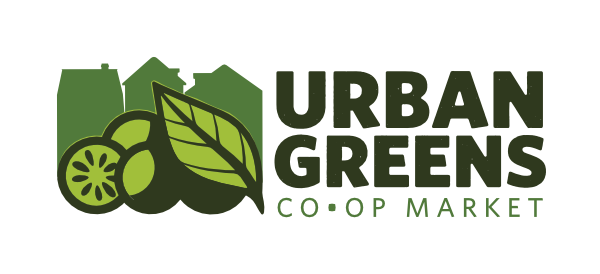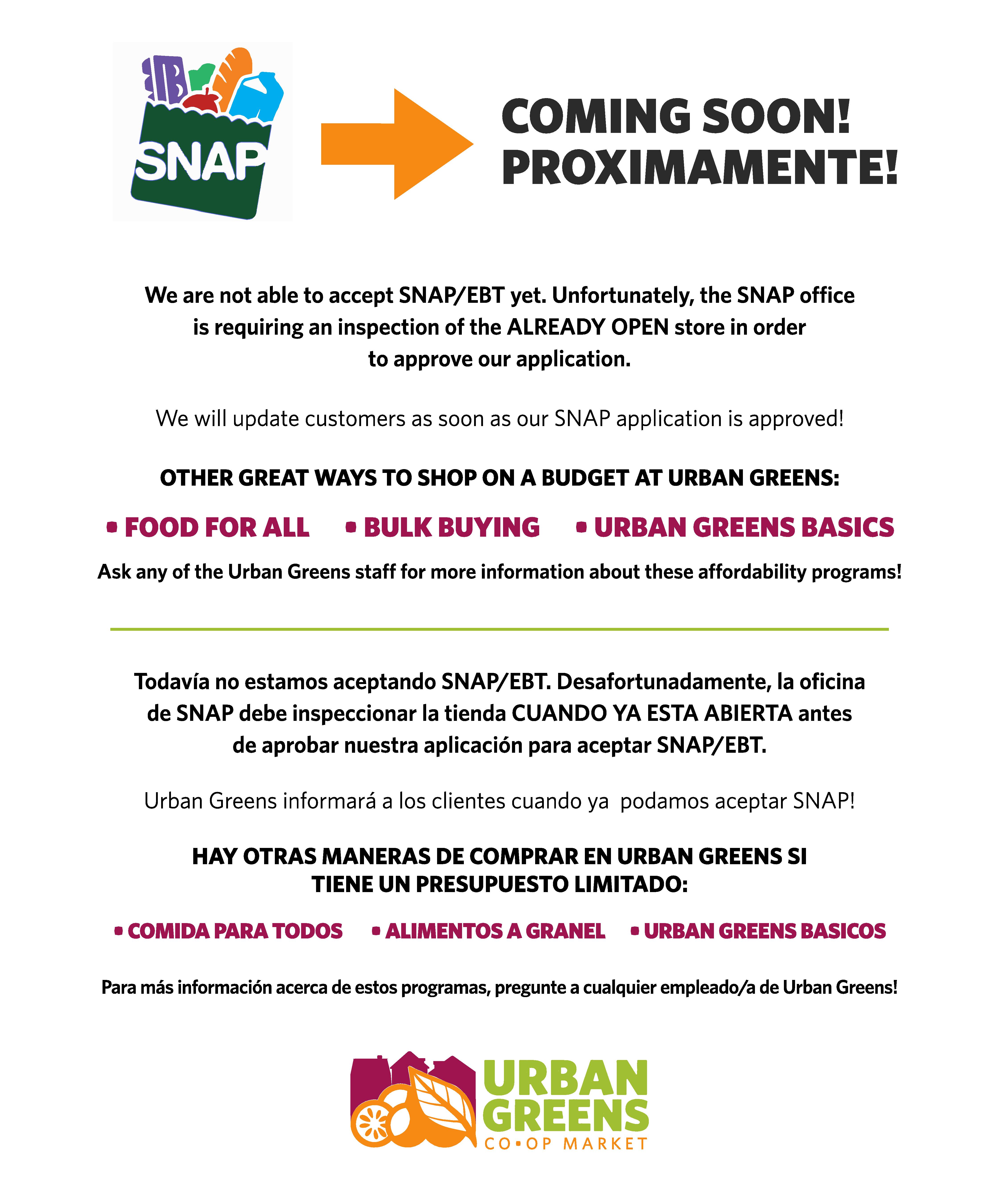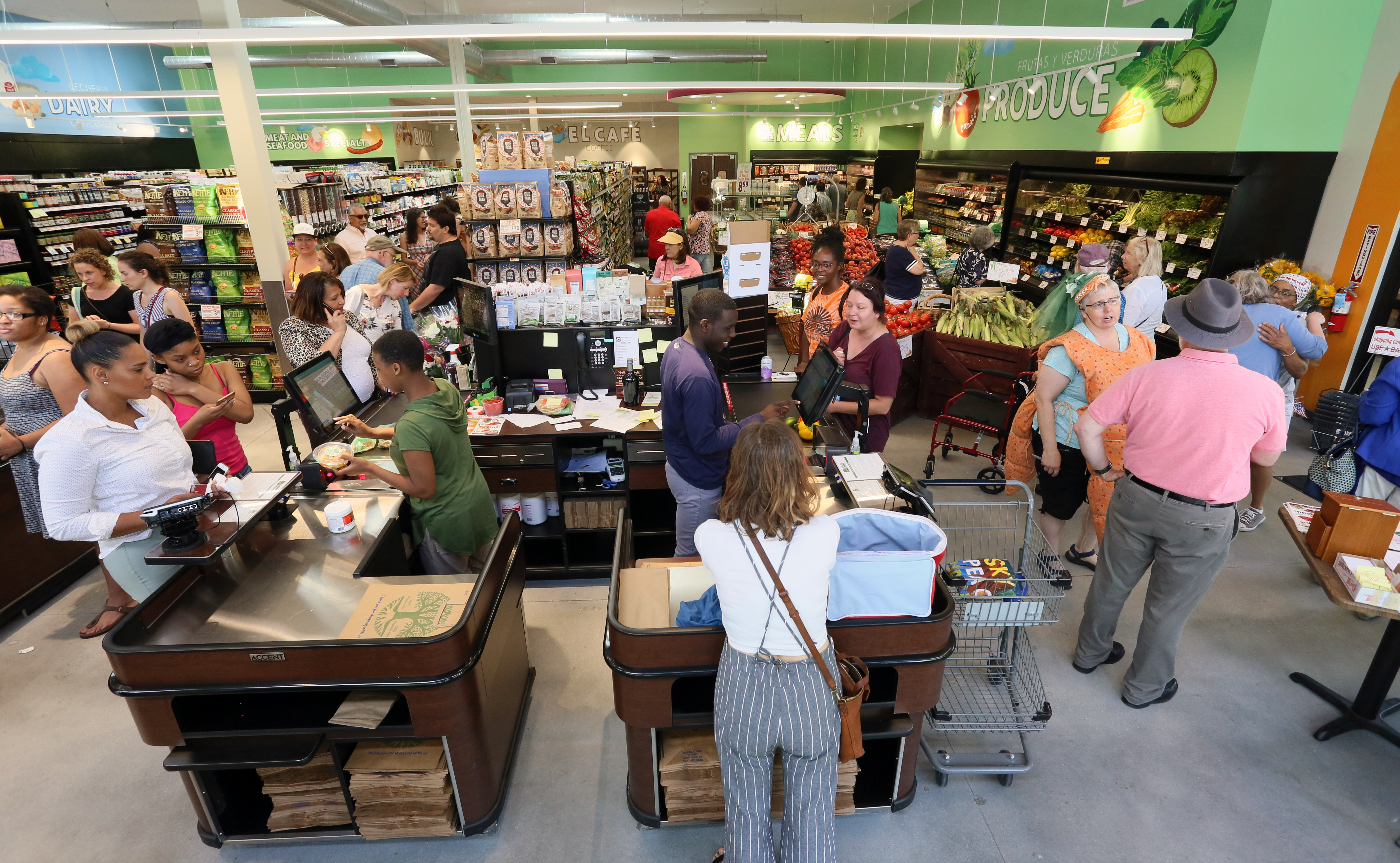July 5, 2019
SNAP coming soon – and the challenges of building an equitable food system!
We’ve gotten some questions over the first week about why SNAP isn’t accepted yet, and think these questions are a great opportunity to start a conversation about food apartheid in the US, and building an equitable food system.
When Urban Greens completed the first part of the SNAP [Supplemental Nutrition Assistance Program] retailer application process, we were informed by the USDA-FNS office that there would be an inspection of the store prior to our application being completed, but initially no timetable as to when. This is normal for any grocery store or corner store that is opening and planning to accept SNAP/EBT.
However, after several weeks of follow up, Urban Greens was informed that the store would NOT be inspected until AFTER it was open. This is NOT normal for any grocery store. As a community owned grocery store that is committed to equitable food access we wanted to know why – we believe that accepting SNAP is a critical part of our mission and business.
What we found is a great window into the extra hurdles for residents on limited budgets in under-served communities like many residents in the West End. The reason that USDA-FNS would not inspect our store prior to opening is that the surrounding neighborhood has been designated as a high risk area for “SNAP fraud”. Essentially, any new grocery store that is serving the residents of the West End and South Providence has to go through extra steps in order to accept SNAP, that would not be required of a new store in an affluent neighborhood.
What makes this even more complicated is that “SNAP fraud” itself is not a simple concept. An article about these issues in Chicago from a few years ago highlights the complexities. The practice of exchanging SNAP incentives for cash (“SNAP fraud”) stems back to the overhaul of the welfare system in 1996. As access to EBT cash benefits declined, the exchange of SNAP for cash became more common. This has often been used as a means for folks to pay for critical items (such as rent) that were not covered by SNAP support. While the exchange of SNAP for cash is not legal, the historical context that paved the way for this practice, and the ramifications of its policing, both have severe impacts on those most in need in our communities.
While Urban Greens expects to be approved to accept SNAP/EBT following the USDA inspection that took place this week, our experience is just one small example of the larger systems that continue to make access to nutritious food less than equal.
Urban Greens is committed to the cause of equitable food access for everyone. We will continue to be an organization that encourages healthy food access in our community, fosters transparent communication, and will work in partnership with others against systemic bias on broader level.
Recent Posts
6th Anniversary party and sales
Tap to see the video we compiled from the party. Big thanks to everyone who participated, and who make our store what it is... The Best of RI's locally owned (community owned) grocery [...]
Interim General Manager Scot D. at our Co-op
Dear Urban Greens Members, My name is Scot DeStasio, and I’m writing to introduce myself as the acting Interim General Manager (IGM) of Urban Greens and a consultant with Columinate. [...]
Sourdough Bread
We found this link from Food52.com as a great place to start when commencing your sourdough bread journey. What better day to read about baking the freshest bread at home than April 1st, Sourdough Bread [...]


